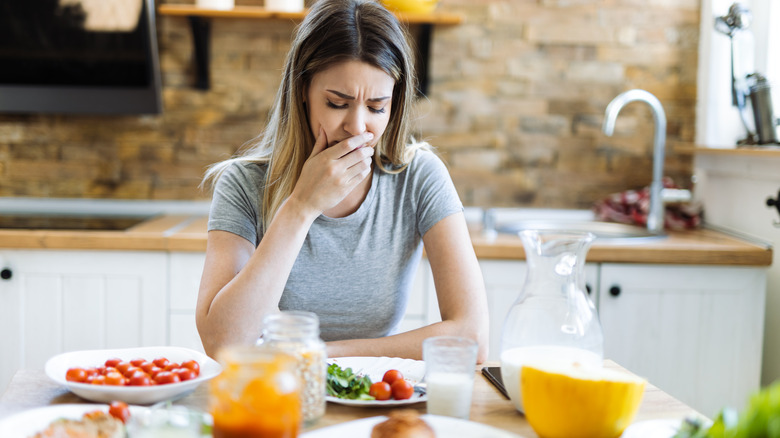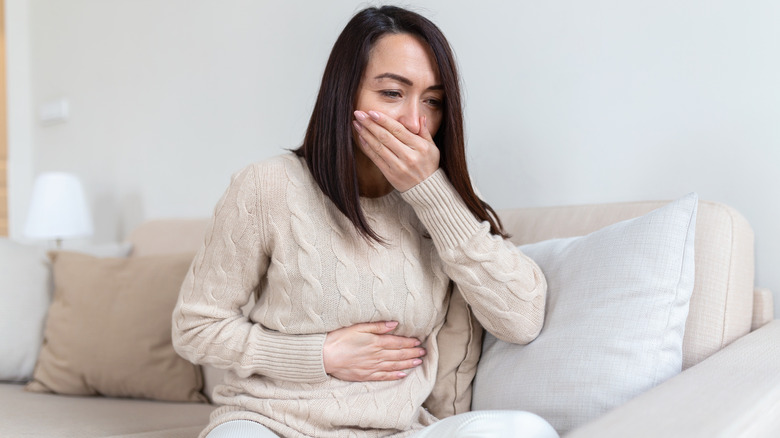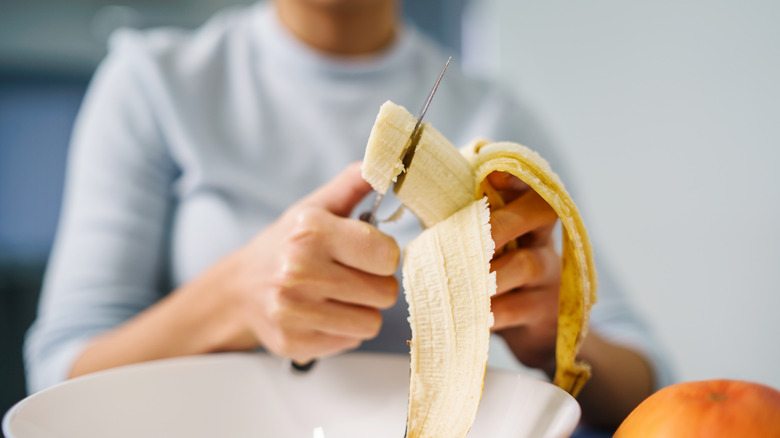What It Means If You Have Diarrhea Immediately After Eating
In the United States, diarrhea is a common health problem. As of 2014, there were approximately 179 million cases of acute diarrhea yearly in the United States, per a 2014 article published in The New England Journal of Medicine. Diarrhea is characterized by loose, watery bowel movements that occur more frequently than usual. The symptoms of diarrhea can range from mild to severe and may include frequent loose bowel movements, abdominal cramps, and nausea. In most cases, diarrhea will resolve independently within a few days without any medical intervention. However, in some cases, diarrhea can be severe and lead to complications, such as dehydration and electrolyte imbalances, according to the Cleveland Clinic. Those most at risk include young children, older adults, and individuals with underlying medical conditions.
If you're experiencing persistent or severe diarrhea, there may be a few reasons. Therefore, it's important to determine the underlying cause and receive appropriate treatment.
The reasons for having diarrhea immediately after eating
If you experience diarrhea immediately after eating, there are a number of things that could be causing it. Food poisoning is one common cause, which can occur when you consume contaminated food or water. Symptoms may include nausea, vomiting, and diarrhea, which usually come on within an hour or even days after eating the food. Lactose intolerance is another common cause. In such cases, your body may be unable to digest lactose, a sugar in milk, leading to an inflammatory response in the gut, resulting in diarrhea, per Medical News Today. Another possible cause of diarrhea after eating is a viral infection, such as stomach flu, also known as viral gastroenteritis, caused by norovirus.
Additionally, certain medical conditions, such as inflammatory bowel disease, irritable bowel syndrome, or celiac disease, may cause diarrhea after eating. These conditions may lead to symptoms such as abdominal pain, diarrhea, and bloating. If you are under significant stress or anxiety, it can also impact your digestive system, causing diarrhea after eating. This is because stress triggers the release of hormones that speed up the digestive process and can cause food to move through the intestines too quickly, leading to diarrhea, per Medical News Today.
What's the best treatment for diarrhea?
If you experience diarrhea immediately after eating, paying attention to other accompanying symptoms and consulting with a doctor to determine the underlying cause is important. They can recommend appropriate treatment based on the diagnosis. The treatment for diarrhea mostly depends on the underlying cause of the condition. In cases where food poisoning is the culprit, diarrhea usually resolves independently without medical intervention, says the Mayo Clinic. However, some simple and effective treatments can help alleviate symptoms and speed recovery. First, try to stay hydrated. Diarrhea can cause fluid loss and lead to dehydration, which can be dangerous, especially for young children. Fluids, such as water, broth, and sports drinks, can help replace lost fluids.
Another effective treatment for diarrhea is to follow the BRAT diet, says Healthline. BRAT stands for bananas, rice, applesauce, and toast. These foods are easy to digest and can help reduce the symptoms of diarrhea. Other foods that can help include plain crackers and applesauce. Over-the-counter medications, such as Pepto-Bismol, can also help alleviate the symptoms of diarrhea. If your diarrhea is severe or persists for more than a few days, seeking medical attention is important.



